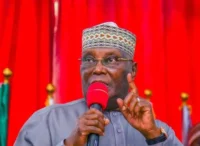Nigeria has reiterated its commitment to creating a transparent, stable, and investor-friendly petroleum sector as Senator Heineken Lokpobiri, the Minister of State for Petroleum Resources (Oil), delivered a keynote address on behalf of President Bola Ahmed Tinubu at the Africa Energy Week in Cape Town, South Africa.
The Minister declared that Nigeria is “open for business” and actively pursuing policies that prioritize investment, efficiency, and long-term growth in the oil sector. “This gathering is more than a conference, it is a call to action,” he said, stressing that Nigeria is ready not just to participate in the global energy market, but to lead reform and growth on the African continent.
Senator Lokpobiri, in a statement signed by Nneamaka Okafor Special Adviser on Media and Communication, outlined the bold policy measures implemented under President Tinubu’s administration, particularly the Petroleum Industry Act (PIA), which provides a clear and predictable fiscal and regulatory environment for investors. The PIA has laid the foundation for licensing transparency, host community engagement, strengthened regulatory oversight, and a fair contractual framework. “What makes Nigeria now different is the legal, regulatory, financial, and structural transformation we are delivering,” the Minister said.
Nigeria’s upstream sector is showing signs of strong recovery. The “Project One Million Barrels” initiative, launched in October 2024, has raised daily crude oil production to between 1.7 and 1.83 million barrels per day, with a notable increase of 300,000 barrels per day in July 2025 alone. Additionally, the number of active drilling rigs has grown from 31 in January to 50 by July 2025, a clear signal that reforms are unlocking value across the sector.
Of particular note were the recent asset divestments by International Oil Companies (IOCs), which the Minister said have unlocked over $5.5 billion in Final Investment Decisions (FIDs) within months. “These are not just transfers of assets, they are transfers of confidence, capability, and ownership,” he stated. The divestments have already added approximately 200,000 barrels per day to national production.
On the broader African context, Senator Lokpobiri urged the continent to retain more value from its hydrocarbon resources by focusing on infrastructure, industrial development, and localized value chains. He noted that Africa spends over $120 billion annually on hydrocarbons, largely through imports, calling it a missed opportunity for economic transformation.
He advocated for stronger intra-African collaboration and financing, emphasizing that Africa holds nearly $4 trillion in domestic capital, including pension and insurance funds. “The question is no longer about the availability of funds, but how we can channel them into productive investments on our continent,” he said.
Addressing the topic of the global energy conversation, the Minister called for balance and equity. He insisted that the narrative must shift toward a diverse energy mix, not abandonment of any resource. “The focus should be on availability, accessibility, and affordability of all forms of energy,” he stressed. He made it clear that Nigeria, like other nations, will continue to utilize its oil resources responsibly while building a diversified and sustainable energy base.
Senator Lokpobiri reaffirmed Nigeria’s role as a leading energy player in Africa. “We are offering opportunities at scale, reform with consistency, incentives with clarity, local participation with respect, and a vision that modernizes with purpose,” he declared.
To global investors, he extended a direct invitation: “Come to Nigeria. Be part of the energy revolution.” With strong reforms, ambitious targets, and an open-door policy, Nigeria is charting a bold path forward in Africa’s energy future.

















Leave a comment